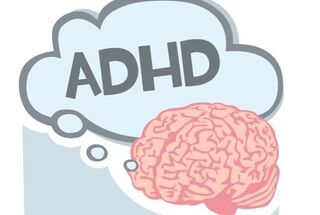ADHD
Parenting Styles and ADHD Symptoms
ADHD researchers may not consider alternate interpretations of their findings.
Posted March 17, 2022 Reviewed by Michelle Quirk
Key points
- ADHD researchers often do not consider that the symptoms of their subjects come as a result of environmental issues.
- The symptoms of ADHD may wax and wane, likely due to changing environmental contingencies.
- "Positive parenting" may lead to improvement of ADHD symptoms in children; negative parenting may be one cause of a poor attention span.

This post concerns yet another not-so-science-based characteristic of many authors of the literature on attention-deficit/hyperactivity disorder (ADHD): their refusal to consider any alternate interpretations of their data other than that they are studying some sort of brain disease.
Environmental Issues
They do not consider the possibility that the symptoms of their subjects come as a result of environmental issues, such as a chaotic home environment and/or sleep deprivation because their parents let them stay up half the night playing video games.
One well-publicized study (Variable Patterns of Remission From ADHD in the Multimodal Treatment Study of ADHD) purports to show that up to 90 percent of children who have ADHD may continue to experience residual symptoms of the disorder into young adulthood. Amazingly, the authors add that they may also have periods of remission along the way. In other words, ADHD is a disease with waxing and waning symptoms. Could it not be that other, environmental issues that create their symptoms are what is doing the waxing and waning?
Negative Parenting Styles
In another publication, Greg Mattingly, MD, of the Midwest Research Group, tells us the following:
Instead of resorting to positive parenting, many of them [parents of kids diagnosed with ADHD] have fallen back on what we call negative parenting: scolding, discipline, getting frustrated. . . .we need to shift . . . into a positive parenting model. I want you to talk to your kids with encouragement about the school year. Share something each day that was something cool they learned in a positive way, and then compliment them for sharing that fact back with you.
So the symptoms get better with positive changes in parenting style? The author doesn’t seem to consider the possibility that negative parenting styles were perhaps one possible cause of the so-called disease in the first place.
This reminds me of TARA, a support group for parents of people with borderline personality disorder (BPD)—at least those that weren’t physically or sexually abusive, since those relatively common parents-of-kids-with-the-disorder would never join a parent support group—other than perhaps the False Memory Syndrome Foundation.
TARA runs some excellent programs for such parents in which they teach parents how not to invalidate their kids. Somehow, however, they say that they do not believe the dialectal behavior therapy (the predominant model for BPD treatment) theory that an invalidating environment is a major cause of the disorder in the first place. In TARA's case, this is a good thing because, if they did that, a lot of these parents would become defensive and would not attend their seminars. But researchers in the field should not follow their lead and ignore this issue as well.
References
Sibley, et. al., "Variable Patterns of Remission From ADHD in the Multimodal Treatment Study of ADHD," American Journal of Psychiatry, published Online:13 Aug 2021.


